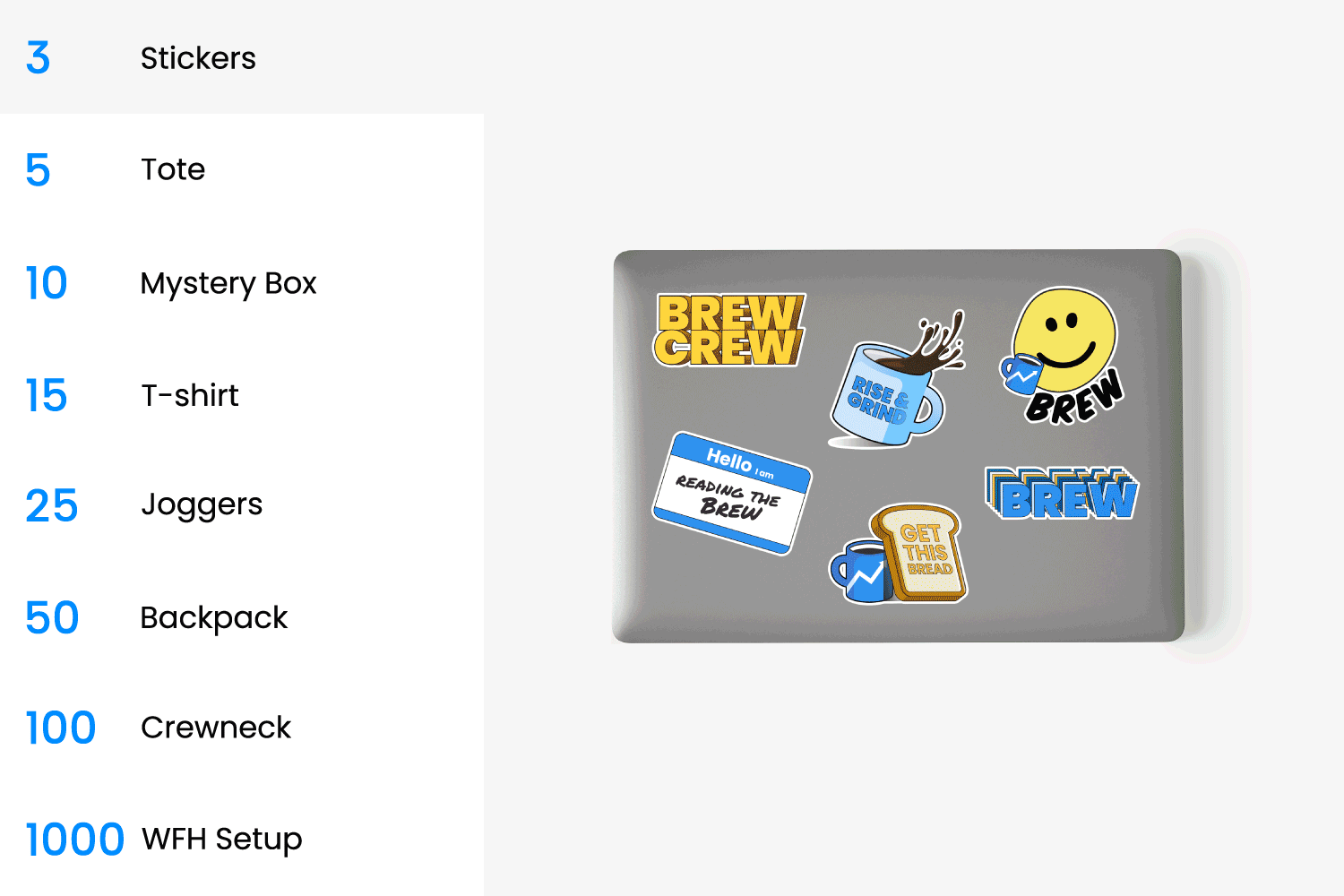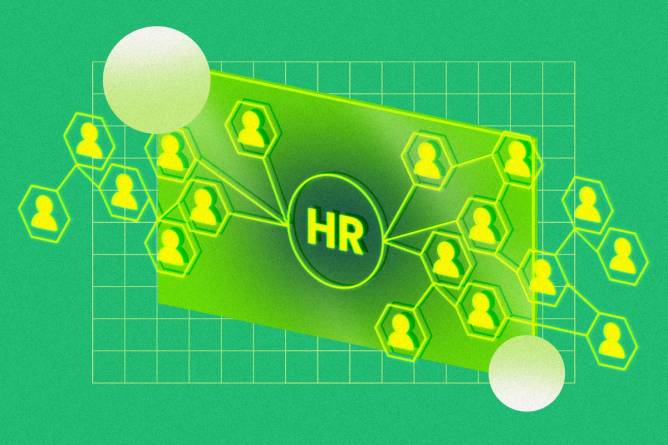Happy Friday! From grounded planes to derailed trains, it’s been a fairly chaotic first full week back at work for commuters and business travelers. Wherever you’re reading this newsletter, we hope you got there safely.
In today’s edition:
 Be mindful Be mindful
 Technically HR Technically HR
 Book club Book club
—Mikaela Cohen, Adam DeRose
|
|
Illustration: Francis Scialabba, Photo: Getty Images
Do you ever feel stressed at work? Of course you do. You’re only human.
In fact, almost all US employees (80%) feel at least some amount of stress on the job, and about one-half of those workers want to learn how to manage their stress, according to the American Institute of Stress.
This is where people leaders can play a key role in helping workers, said Scott Domann, chief people officer at meditation app Calm, and be “rewarded with high productivity and employee satisfaction,” he said. By creating a culture that values mindfulness, he told HR Brew he’s been able to help his roughly 300 employees strike a “strong work-rest balance” through daily meditations and company-wide mental health days.
Meditations and breaks. Two years ago, Calm started conducting twice-yearly engagement surveys, the results of which have helped shape the company’s mindfulness programs.
Keep reading here.—MC
|
|
What’s the bottom-line impact of corporate learning? That’s a good (and common) question. 46% of orgs say ROI is a challenge, and only 33% say they measure the financial outcomes of corporate learning at all. In the end? Measuring the ROI of learning is, well, tricky.
To maximize—and understand—the impact of your learning investment, snag D2L’s handy guide, Redefining the ROI of Corporate Learning.
D2L and Training Industry asked 300+ learning leaders about measuring the impact of learning programs, how they define success and effectiveness, and what the future could hold for assessing corporate learning initiatives.
In short, class is now in sesh. Grab your free copy of the guide to see what could work for both your employees and your biz.
|
|
Francis Scialabba
On Thursday, the online learning platform Coursera launched a new collection of courses designed to help businesses equip both their employees and leaders with the tools and knowledge needed to leverage AI at work for optimum productivity gains.
Coursera’s GenAI Academy is rolling out foundational courses for the everyday generative AI user, as well as an entire executive education track for leaders. The platform is partnering with companies and institutions like DeepLearning.AI, Stanford Online, AWS, Vanderbilt University, and Google in designing the courses.
“[We] started to hear from our clients and our learners that there was a big need for understanding this [AI] space. Lots of talk; lots of hype, but how do I do it?” said Coursera’s chief learning officer, Trena Minudri. “Our sweet spot is trusted content…from the best university and industry partners, and we realized that content coming from our partners with the Coursera brand…was exactly what our clients needed.”
Zoom out. A United Nations International Labor Organization study of the technology found that generative AI will likely have an augmenting effect on most jobs (rather than replacing them, phew), leaving large swaths of employees in need of familiarity and skills utilizing the tools.
Keep reading here.—AD
|
|
Grant Thomas
Let’s talk DE&I.
Corporate diversity initiatives faced backlash and cuts last year as conservative politicians, in the wake of the Supreme Court’s affirmative action decision, fought to end them at companies, Politico reported.
In her recent book The Advantage of Other, described as “a leader’s guide to building an equitable, dynamic, and productive workplace,” CEO of social impact firm Flexability Nancy Geenen shares how leaders can create a company culture that supports DE&I.
This interview has been edited for length and clarity.
What do you hope HR pros learn from your book?
Understanding your team and knowing them in the workplace, having real strong self-awareness, and [promising] to get better as a leader.
Keep reading here.—MC
|
|
Francis Scialabba
Today’s top HR reads.
Stat: High-paying flexible work is becoming more scarce, with listings for hybrid jobs paying $100,000 or more falling by 69% last quarter compared to the quarter before, according to career site Ladders. (Business Insider)
Quote: “There are a lot of things that I have heard or seen but can’t divulge…So-and-so is cheating on their spouse—that type of scenario.”—Suzy Dichairo, an executive assistant, on the piping hot tea she’s been privy to during her 20-year career (the Wall Street Journal)
Read: Google, Amazon, and BlackRock are among the roughly two dozen firms that have announced plans to lay off workers in recent days. (LinkedIn)
Read up on ROI: How do modern organizations calculate the ROI of corporate learning? They can start with D2L’s guide, Redefining the ROI of Corporate Learning, to see how fellow learning leaders measure impact.* *A message from our sponsor.
|
|
|
Share HR Brew with your coworkers, acquire free Brew swag, and then make new friends as a result of your fresh Brew swag.
We’re saying we’ll give you free stuff and more friends if you share a link. One link.

Your referral count: 2
Click to Share
Or copy & paste your referral link to others:
hr-brew.com/r/?kid=9ec4d467
|
|
|








